iPhone strike: Why smartphone maker BlackBerry failed
Telstra boss Vicki Brady couldn’t live without one. Origin’s Frank Calabria never put his down. A new film plots the cautionary tale of how the darling of the business elite spectacularly imploded.
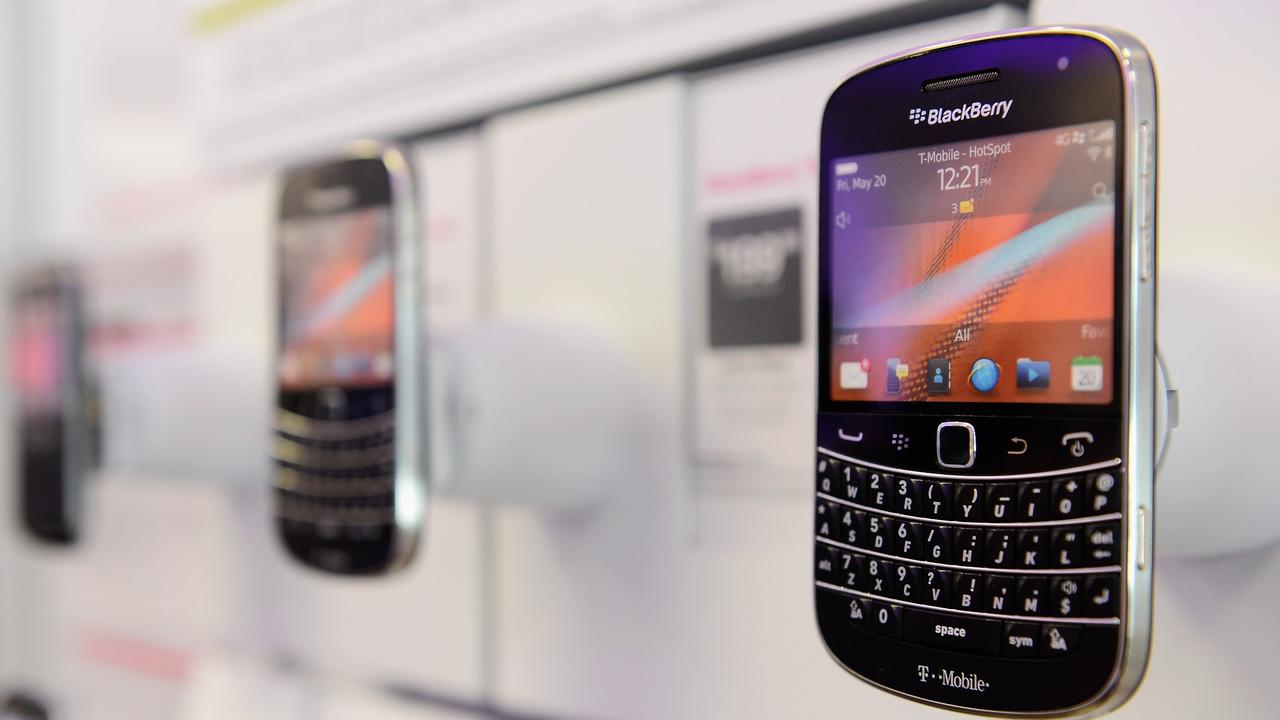
Telstra boss Vicki Brady couldn’t live without one. Suncorp chief Steve Johnston and Origin’s Frank Calabria never put theirs down. Before the iPhone was the BlackBerry and it was more than a mobile phone, it became a tool of Wall Street and executives on the rise.
It put instant communications in the hands of everyone and it came with a sublime, satisfying clicking keyboard that was as addictive to use as the email it allowed you to send from anywhere.
BlackBerry, a new film released in cinemas across Australia this week charts the stunning rise of the smartphone and the Canadian tech geeks behind it. But the implosion of the company behind BlackBerry –Research In Motion – also becomes a cautionary tale for businesses that believes their own hype and fails to anticipate the external threats. In short the disrupter eventually becomes the disrupted.
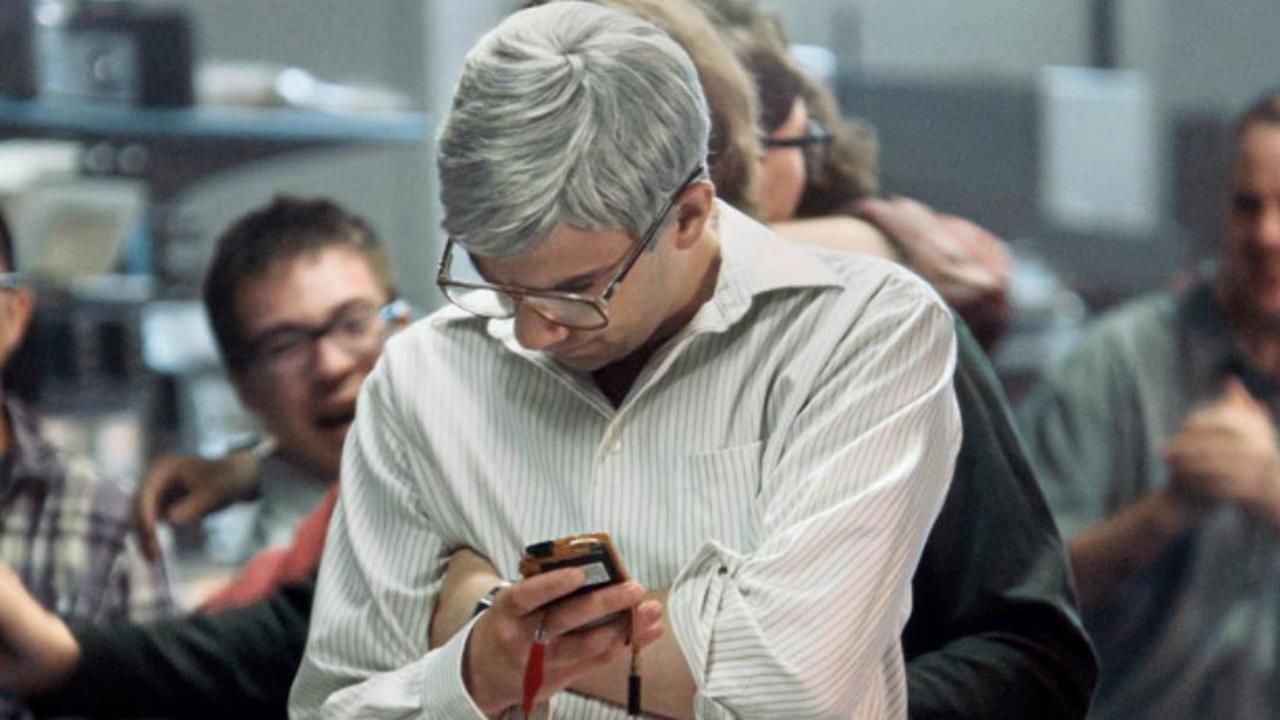
Canadian filmmaker Matt Johnson charts how the BlackBerry came about from its clunky Tandy-spare parts prototype in the mid-1990s which was around about the same time computer maker Apple was on the verge of going bankrupt.
Shy tech nerd Mike Lazaridis (Jay Baruchel) is trying to stay on top of his scrappy modem resale business based in the suburbs of Ontario, Canada.
However, Lazaridis had cracked the code of how to use mobile signal to also carry email. Until then the volume of data needed would collapse telco networks. However he had no idea what it meant to sell the idea and he lacked the urgency get his phone into the market That was until he comes across hard driving sales executive Jim Balsille (Glenn Howerton) who saw the potential and quickly becomes BlackBerry’s co-CEO.
Director Johnson also stars in the film as Lazaridis’ in-the-way friend and business partner Doug Fregin, who ironically was later to become one of few winners from BlackBerry’s stunning decade of success. Fregin was forced out of RIM near the top, prompting him to dump all his shares.
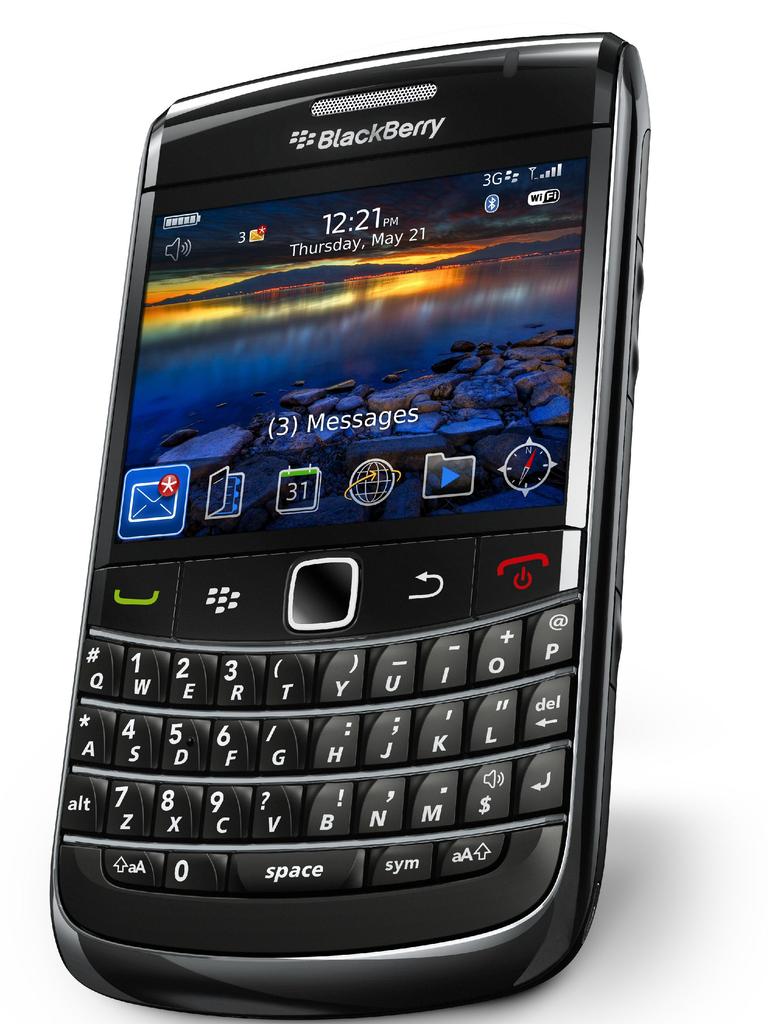
But with the BlackBerry devices quickly dominating handset sales in North America during the 2000s, pushing out Nokia and US flagship Motorola while destroying original note taker Palm Pilot, RIM become Canada’s most valuable company worth in excess of $70bn.
BlackBerry’s were being given away the Oprah Winfrey show and the black devices were on the covers of magazines. Teenagers were also lapping up BlackBerry for its secure instant messaging app BBM.
All that changed in early January 2007 when Apple’s Steve Jobs stood and declared his Silicon Valley tech giant was going to “reinvent the phone”.
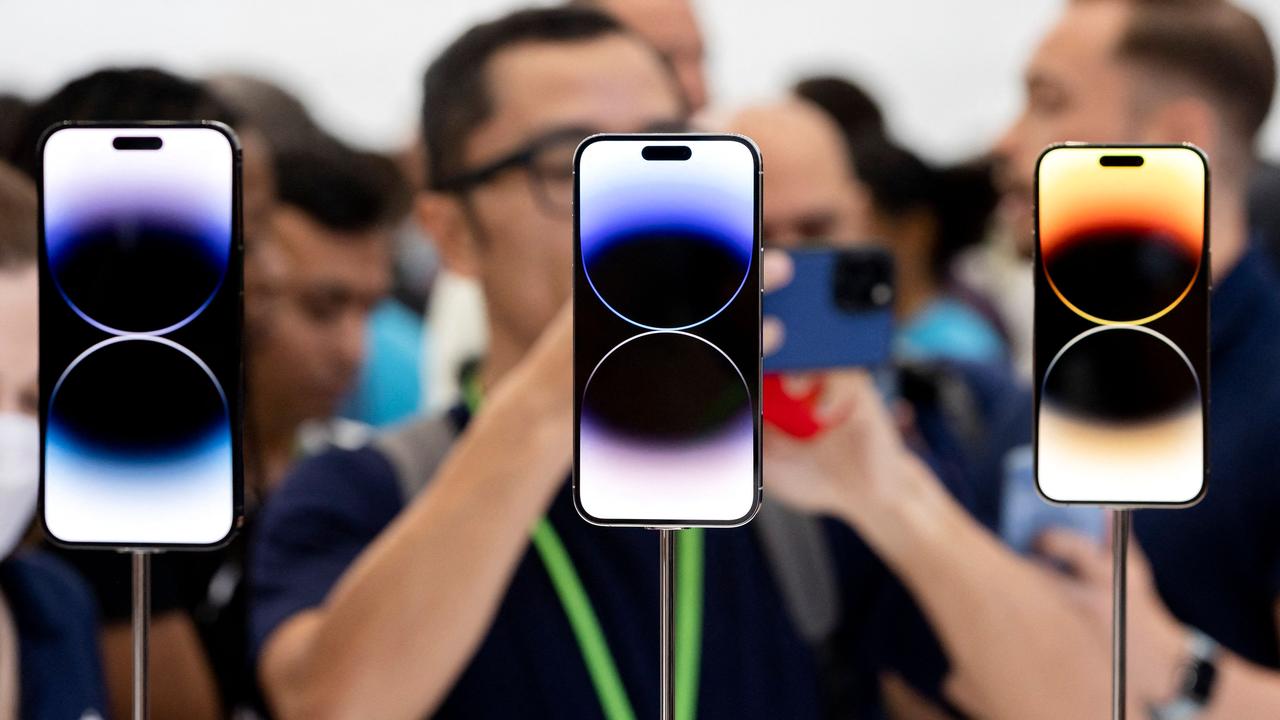
Jobs calculated it was content and software it travelled on that was key to user experience. The hardware, or device, was merely the delivery. His strategy was to get rid of “all these buttons” and combine three separate devices: An iPod for music; a mobile phone and the internet. Revolutionary stuff.
As far as Lazaridis was concerned it was the device that was king and he refused to see past that.
A keyboard on the iPhone screen was the “stupidest thing I’ve ever seen in my entire life,” he tells his Fregin back in Canada as they are grappling how to put a clunky trackball on their latest BlackBerry model.
“Ask anyone what they love most about their BlackBerry and you will get the same answer every single time – the keyboard the click,” Lazaridis says.
But big telco could see what the moment meant and wanted more. A rushed version of a full touch screen BlackBerry without a keyboard. The BlackBerry Storm tried to keep the click on the touchscreen was just a confused imitation of the iPhone and lacked the killer applications that came with an Apple.
Lingering problems with the Storm from cheap manufacturing are an added insult for Lazaridis – a perfectionist who earlier through BlackBerry’s development cautioned that the phrase “I’m good enough” is the “enemy of humanity”.

Adding to the crash to come was Bastille, RIM’s driving force who had delivered BlackBerry its commercial success. In a classic case of a CEO becoming bored or distracted, Bastille took his eye off the ball.
Instead, he become more interested in flying RIM’s corporate jet across North America to drum up support for a new ice hockey franchise in Canada. He missed board meetings and become impossible to reach when warnings were finally surfacing at RIM’s corporate headquarters about what was to come with the iPhone.
Lessons learnt
The clearest message from BlackBerry is that companies that don’t challenge themselves to evolve will quickly be left behind. History is littered with businesses that stood still. The stakes are even higher in tech where the life cycle of a good idea has shrunk and is no longer measured in years.
Johnson, who adapted the film from the best-selling book: The Untold Story Behind the Extraordinary Rise and Spectacular Fall of BlackBerry, say the cultural importance of the device and the BBM messaging can’t be understated.
“The BlackBerry was the status symbol of the early-2000s and at the beginning of the social-media era, it made you part of a group. The BBM perfectly captured that, like you can’t talk to somebody on BBM unless you both have BlackBerries, it opened up a new way of communicating, way before Instagram DMs or Snapchat.”
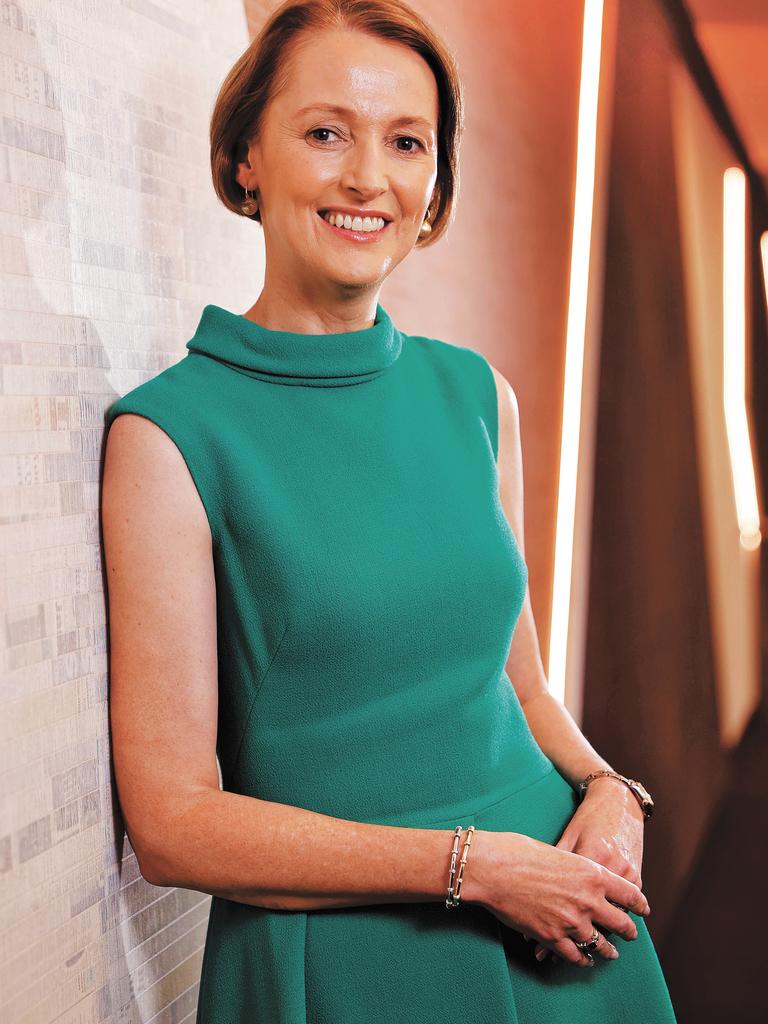
Telstra’s Brady says she was constantly typing away on the tiny keyboard of her BlackBerry. “They were unassailable at the time”.
“I can remember using my BlackBerry thinking you couldn’t live without it and then all of a sudden it was the iPhone”.
“It’s really important that need to keep innovating and thinking about where disruption will come from”. Telstra, a telco that rises and falls on tech trends, publishes five pages of what it considers to be material risks to the running company at the very front of its annual report for all to see.
BlackBerry – the company – still exists, but it is a fraction of its former self with a worth of just over $3bn it is focused purely on cyber security applications. Smartphones are long gone and Lazaridis these days is investing in quantum computing technology.
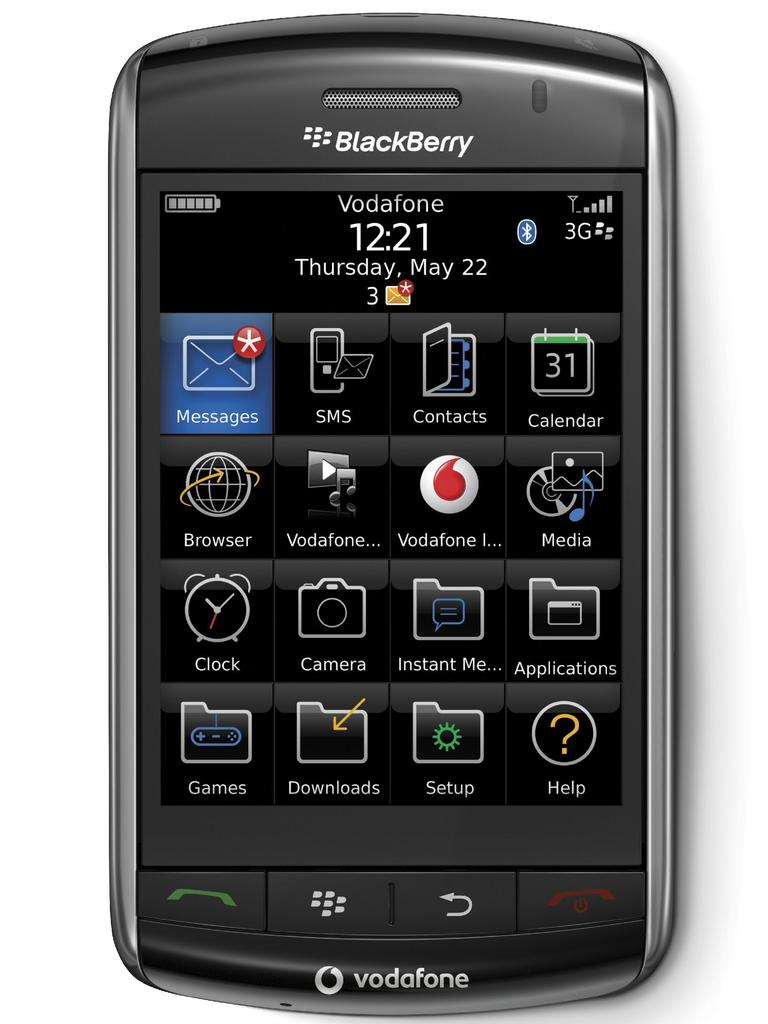
Origin Energy chief Frank Calabria says he was one of the holdouts of his BlackBerry before his tech team switched his off. But he says there lessons even for his industry in just how dramatically emerging technology can change the customer experience. This can apply to the rise of rooftop solar, batteries, and micro energy grids.
“The conversion of data and energy will ultimately give a greater experience to customers. So we can’t underestimate what that experience will look like over time and therefore we have to continue to invest with that in mind,” the Origin boss says.
Suncorp chief executive Steve Johnston, a former executive with Telstra, says he must had seemed like a salesman for BlackBerry given how much he was using it at the time. But that changed when iPhone came over the top with greater functionality.
“It that just shows that if you’re not improving your product and you’re resting on your laurels, you can very quickly unwind your relevance,” Johnston says.
Originally published as iPhone strike: Why smartphone maker BlackBerry failed



